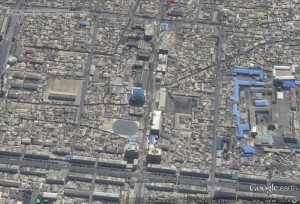Institute for Far Eastern Studies (IFES)
2015-2-27
According to the Choson Sinbo, a pro-North Korean newspaper in Japan, North Korea is promoting “diversification in foreign economy,” and has recently signed “bilateral agreements on promotion and protection of foreign investment” with 28 countries and “double taxation avoidance agreements” with 13 countries.
The newspaper cited an interview with Kim Chon Il, the director of (North) Korea Economic Development Association: “multilateral foreign economic development signifies developing foreign economic relations with many countries around the world in various economic sectors and units, unlike in the past where foreign economic activities were concentrated around only a few countries.”
In addition, he said, “the form of exchange and cooperation is also orienting toward diversification” and “We are promoting businesses in various sectors in trade, investment, joint venture, and science and technology cooperation based on new products and achievements made with the state-of-the-art science and technology.”
The Choson Sinbo article emphasized that, “Currently foreign economic business projects are not delegated to only a specific unit,” and that “Choson [North Korea] is promoting various business establishments and management of domestic institutions, corporations, and organizations as well as encouraging various overseas companies and individuals in joint venture projects and establishing independent foreign companies in special economic zones.”
The news also elaborated on the amendment of recent foreign investment laws and explained that new regulations and bylaws are being developed to incorporate various investment strategies including internationally recognized BOT (build-operate-transfer) method.
Moreover, the article confirmed that “the core of the DPRK’s foreign economic development lies with the economic development zones,” and the development plans for economic development zones and investment attraction projects are well underway since last year.
Director Kim Chon Il confirmed that “Currently, the total development plans of 13 provincial-level economic development zones were completed and the total plans for the rest of the economic development zones are in the closing stages.”
He added that the Wonsan District Development General Corporation was launched last year and disclosed that the development plans for the Wonsan-Mt. Kumgang International Tourist Zone was completed.
Furthermore, Kim estimated the preparatory period for the business to take about two years and that the substantial business plans must begin now, starting with the selection process for tenant companies. He stressed, “It is timely to vigorously attract investment from around the world on a large scale in accordance with the total development plans of the economic development zones.”

